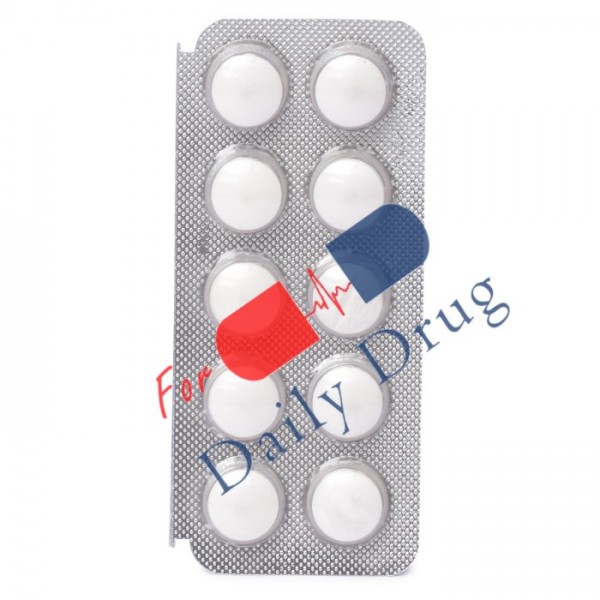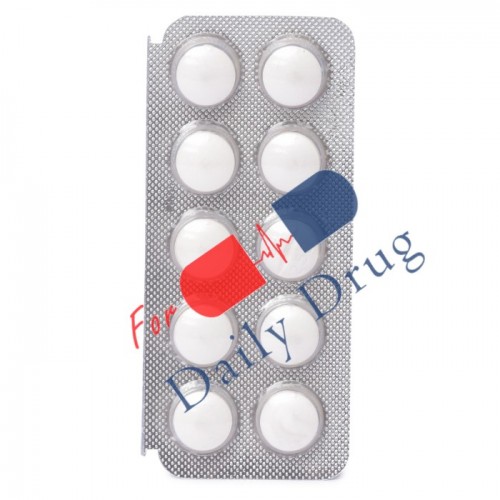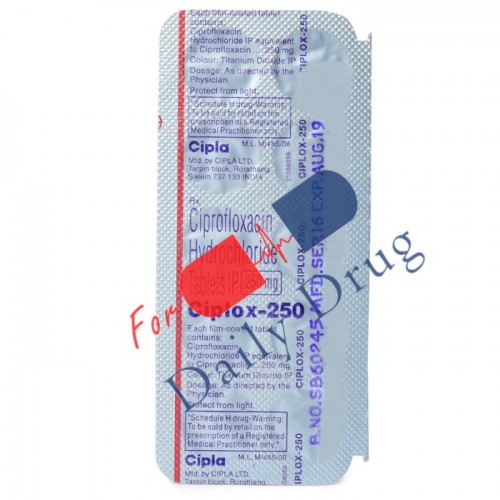| Specification | |
| US Brand Name | Cipro |
| Strength | 250mg |
| Generic Name | Ciprofloxacin |
| Manufacturer | Cipla |
| Pharmaceutical Form | Tablet/s |
Ciprofloxacin is the drug that is used to treat the
infections caused by bacteria in the body. This drug belongs to a group of
antibiotic drugs called fluoroquinolones.
The various bacterial infections treated using this
drug are:
§ Infections of the lower respiratory tract
§ The abdomen, the skin, the bones and joint infections
§ Urinary tract infections, including cystitis (bladder
inflammation) in women
§ Severe sinus or bronchial infections
§ Infectious diarrhea
§ Typhoid fever
§ Infections of the prostate gland
§ Sexually transmitted diseases such as gonorrhea
Additionally, some doctors prescribe Cipro for
certain serious ear infections, tuberculosis, and some of the infections common
in people with AIDS.
Understanding the drug:
How it works?
The antibiotic ciprofloxacin works by killing the
bacteria that cause the infection. It is effective against both the gram
positive and gram negative bacterial cells. The drug hampers the cell
replication process of bacteria, by inhibiting the function of DNA gyrase or
type II topoisomerase enzymes that separates the bacterial DNA and prepares it
for the replication process.
Who should avoid it?
You should not take this drug if you:
§ Have an allergy to this drug
§ Have heart rhythm problems
§ Have trouble swallowing this drug
§ Have liver problems
§ Have kidney disease
§ Have seizures or epilepsy
§ Have a history of brain injury
§ Have low levels of potassium in blood
§ Are breastfeeding as this drug may pass into the blood and may
harm the baby
§ Are pregnant
What are the strengths available?
The drug Ciprofloxacin antibiotic is available on our
website in the following strengths and brand names:
Ciplox 100 mg
Ciplox 250 mg
Ciplox 500 mg
Ciplox 750 mg
Cifran-OD 1000 mg
Who is the manufacturer?
Ciplox and Cifran are the products of two well known
Indian pharmaceutical companies Cipla and Ranbaxy respectively. These two
drugs are available in different pack sizes of tablets our website.
How much to take?
The drug is taken with a gap of 12 hours in
between hence the drug should be taken exactly as prescribed by the doctor
only. Do not take this drug less or more than the prescribed dose.
How to take it?
Cipro may be taken with or without meals but is best
tolerated when taken 2 hours after a meal. Drink plenty of fluids while
taking this medication to prevent crystals from forming in your urine.
When to take?
The drug is taken two times a day, usually in the
morning and evening with or without meals.
For how long should it be taken?
The length of treatment with Cipro depends upon the
severity of infection. Generally, Cipro should be continued for at least 2 days
after the signs and symptoms of infection have disappeared. The usual length of
time is 7 to 14 days; however, for severe and complicated infections, treatment
may be prolonged. The following is the detail of the treatment:
§ Bone and joint infections: treatment for 4 to 6 weeks or longer
§ Infectious diarrhea: may be treated for 5 to 7 days
§ Typhoid fever: is treated for 10 days
§ Chronic prostate inflammation should be treated for 28 days
§ Cystitis in women: takes 3 days of treatment
What if you take too much (overdose)?
Symptoms of overdose are like:
§ Restlessness
§ Irritability
§ Drowsiness
Seek medical attention in case you find you have
used more of this medicine or if you find the kind of discomfort after
taking this medicine.
What if you miss the dose?
Take the missed dose as soon as you remember. But if
it is almost the time of your taking the next dose, then skip the missed dose
and never take up extra medicine to make up for the missed one.
What are the side effects?
Along with the benefits, most of the medicines have
their unwanted side effects. It is not necessary that everyone will experience
them. Some of the side effects may ward off automatically as your body becomes
used to it or adjust itself
accordingly.
Certain side effects include:
§ Feeling tired and sleepy
§ Feeling sick
§ Dry mouth
§ Diarrhea
§ Vomiting
§ Stomach pain
§ Indigestion
§ Intestinal inflammation
§ Involuntary eye movement
§ Irregular Nausea
§ Sore throat or cough
§ Constipation
§ Hyperactivity
§ Tremors or weakness
Are there any possible drug interactions?
Drugs may interact with each other to produce
certain unwanted effects like changing the way they work or increase the
chances of side effects. Make a list of all the products you use and share it
with your doctor.
If Cipro is taken with certain other drugs, the
effects of either could be increased, decreased, or altered. These drugs
include:
§ Cyclophosphamide (Cytoxan)
§ Cyclosporine (Sandimmune, Neoral)
§ Glyburide Metoprolol
§ Phenytoin
§ Probenecid
§ Sucralfate
§ Theophylline
§ Warfarin
What are the things to be taken care of?
§ Avoid alcohol, sedatives and tranquilizers as they may increase
drowsiness.
§ Do not drive or work use tools or machines, i.e. don’t do that
work which will require mental alertness as this medicine may cause drowsiness
in some people.
§ Do not give this medicine to anyone else.



